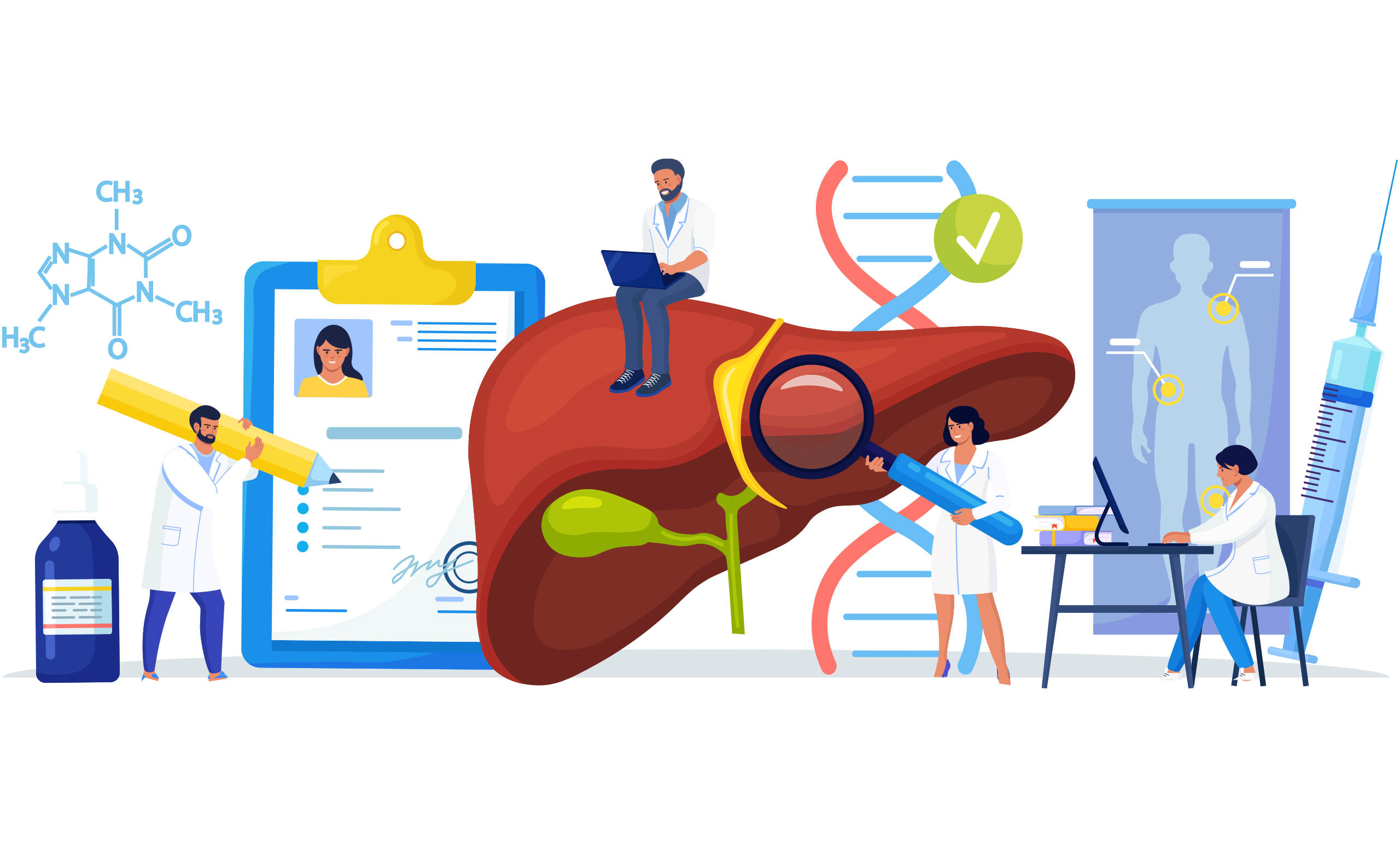Every October, Liver Cancer Awareness Month focuses attention on one of the most serious and fast-growing cancers affecting people around the world. This observance shares facts and statistics and promotes liver awareness, the importance of prevention, and the recognition of the role of hospice care in ensuring peace of mind, comfort, and dignity during the final stages of liver cancer.
Liver Cancer and Its Causes
Liver cancer, medically known as hepatocellular carcinoma (HCC), is most often linked to chronic liver diseases such as hepatitis or cirrhosis. According to the World Health Organization (WHO), liver cancer is still the third leading cause of cancer-related deaths globally, responsible for nearly 830,000 deaths each year.
Among the causes, liver cancer from hepatitis B continues to be one of the most significant. Chronic hepatitis B infection silently damages liver cells over many years, increasing the risk of developing cancer. In fact, the Centers for Disease Control and Prevention (CDC) reports that hepatitis B accounts for 50 to 60 percent of liver cancer cases worldwide, particularly in regions where vaccination rates remain low.
When people ask which hepatitis causes liver cancer, the answer is clear: hepatitis B and hepatitis C are the primary viral causes. However, hepatitis B poses a greater global threat because it can infect people early in life and persist for decades without symptoms.
Recognizing Liver Cancer Symptoms Early
One of the greatest challenges in treating liver cancer is that early symptoms are often subtle or absent. By the time noticeable signs appear, the disease is usually in an advanced stage. The most common liver cancer symptoms include:
As liver cancer progresses, patients may also experience swelling in the legs, itching, or fluid buildup in the abdomen (ascites). Recognizing these warning signs and seeking prompt medical evaluation can make a difference in diagnosis and treatment outcomes.

Timely Hospice Care
The period from liver cancer diagnosis to death can vary significantly depending on the stage of the disease and the overall health of the patient. Unfortunately, liver cancer tends to progress rapidly once detected. This makes early hospice referral critical in ensuring comfort, dignity, and support for everyone involved.
When curative treatments are no longer pursued, hospice care provides specialized end-of-life care that focuses on quality of life rather than length of life. Hospice professionals, including doctors, nurses, social workers, and spiritual counselors, work together to manage pain and alleviate distressing symptoms such as:
By managing these challenges holistically, hospice care allows patients to spend their final days in peace, often in the comfort of their own homes, surrounded by loved ones.
Liver Cancer Does Not Discriminate
This year’s theme for Liver Cancer Awareness Month, promoted by the Global Liver Institute (GLI), focuses on “Liver Cancer Rights.” The main goal is to highlight the importance of patient perspectives and advocates in ensuring greater attention to patient needs in care, research, and policy.
Campaigns aim to address disparities in care, raise awareness of risk factors and symptoms, and promote prevention through lifestyle changes, often symbolized by the emerald green ribbon.
The Key to Reducing Liver Cancer Cases
A major takeaway during liver cancer month is that many causes of liver cancer are preventable. Vaccination and regular medical checkups can significantly reduce risk. The World Health Organization continues to recommend universal hepatitis B vaccination for infants, which has already reduced new infections in many countries.
For adults, preventive measures include:
Through liver awareness campaigns and community education, public health organizations encourage at-risk individuals to seek medical advice before symptoms arise. Early management of hepatitis B and C can prevent progression to liver damage and cancer, ultimately saving lives.

The Emotional and Physical Toll of Advanced Liver Cancer
As liver cancer advances, both patients and families face tremendous emotional and physical strain. Patients often experience fatigue, weakness, fluid retention, confusion, and reduced appetite. These symptoms can be distressing for families who are witnessing their loved one’s decline.
Hospice care provides vital relief during this time by offering medical expertise and emotional support. Families receive guidance on how to manage symptoms at home and are supported through counseling and bereavement services. The focus is always on ensuring that the patient experiences comfort, dignity, and emotional peace in their remaining days.
Why Early Hospice Referral Matters
Choosing hospice care earlier rather than waiting until the very last days can significantly enhance a patient’s comfort and emotional well-being. Early hospice referral gives the care team more time to:
- 1Build trust with the patient and family
- 2Develop personalized care plans
- 3Manage pain and symptoms effectively
- 4Provide emotional and spiritual counseling
Hospice care is not about giving up but about shifting the focus to compassionate comfort when curative treatment is no longer beneficial. It ensures that patients live fully, even at the end of life, and that families feel supported every step of the way.
Raising Awareness and Advocating for Change
Liver Cancer Awareness Month reminds us that education, prevention, and compassion must go hand in hand. By promoting liver awareness and supporting campaigns that address healthcare disparities, communities can help prevent late diagnoses and improve survival rates.
At Ascend Hospice Care, we remain committed to supporting everyone facing advanced liver cancer with care that honors their dignity and provides comfort during every stage. Through early hospice involvement, families gain not only medical and emotional guidance but also peace of mind during one of life’s most challenging moments.
As October continues, let this liver cancer month serve as a call to action, to encourage early detection, promote vaccination, and advocate for equitable access to care. Together, we can reduce the toll of liver cancer and ensure that every person affected by this disease receives the compassion and support they deserve.




